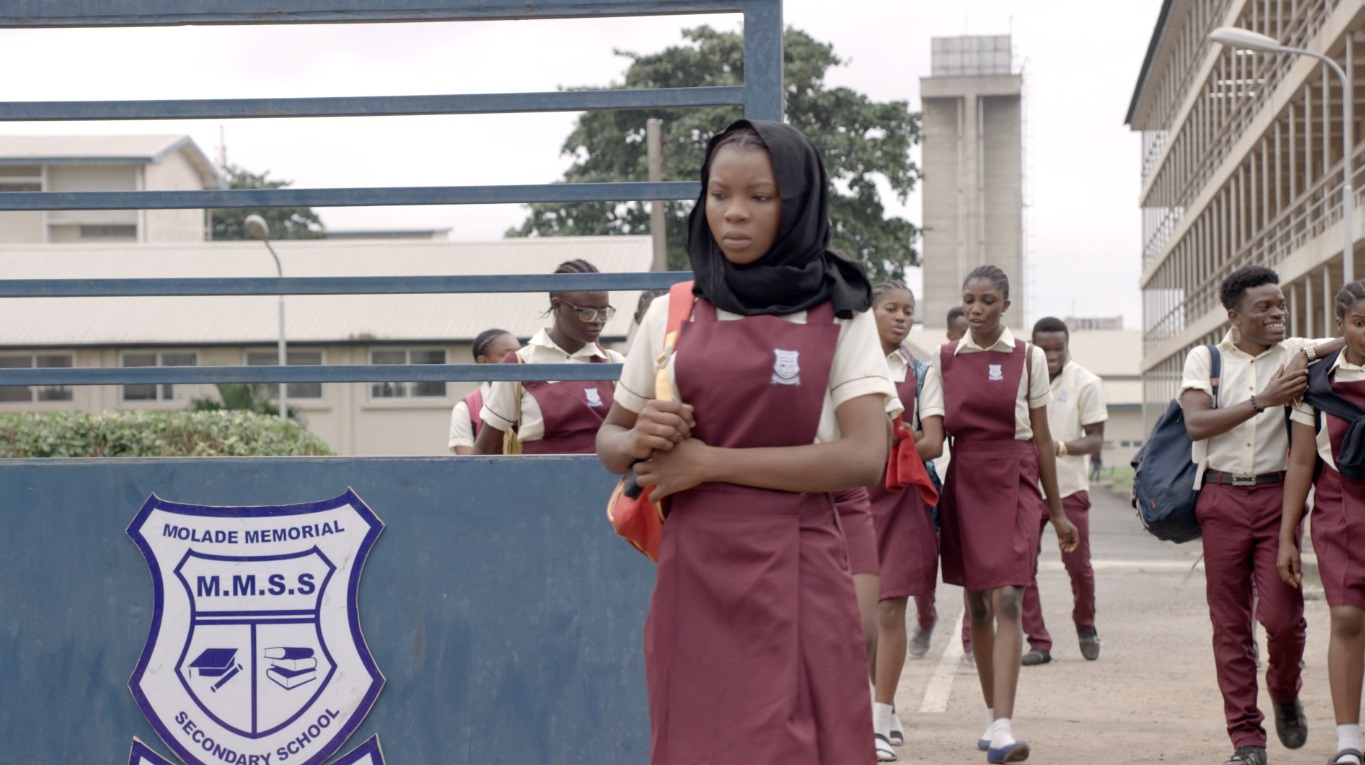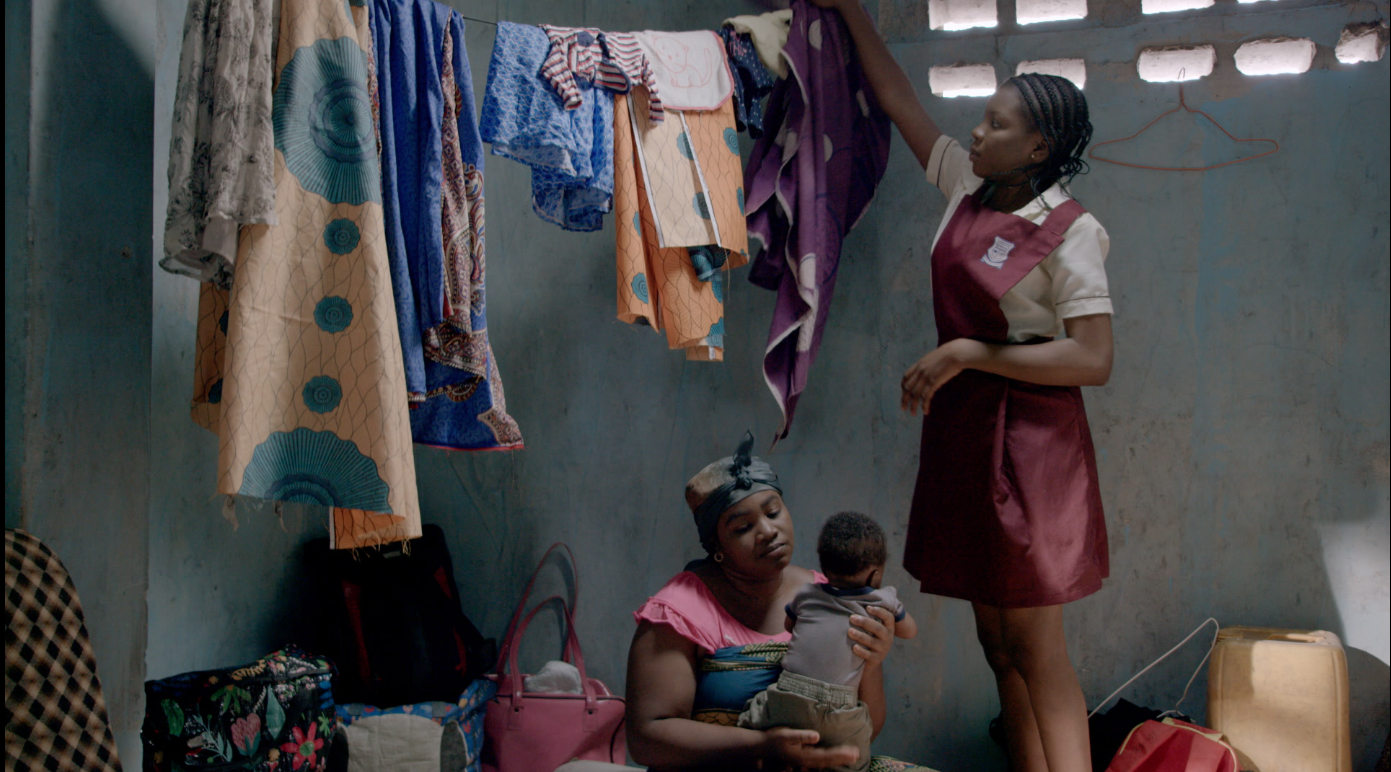Hadiza Walked So Other Girls Can Run
News
By Adebola Aduwo
01/07/2019

Hadiza's quest to educate herself opened up the doors for many other girls to follow in her footsteps. Adebola Aduwo relates Hadiza's story to the reality of many girls in Northern Nigeria.
Eid mornings were my favourite. I would wake up bright-eyed with so much energy, skipping around our yard in excitement as I chanted, “Thank you for this day, Allah. And for the meat. Especially the meat.”
Making a quiet stop at my step-sister’s window was a ritual for me as I watched her darken her kohl-rimmed eyes with the kajal she stole from her mother’s purse the previous night. Unlike me, Hafiza had fair skin and a slender figure that attracted men from all around town to our home. Mama would say to me, “Dan Allah, Fati, take care of yourself. Do you want to live in your Baba’s house forever?”
Honestly, I did not care much for all of that. Can you guess what tickled my fancy? The art of writing! Isn’t it fascinating stringing words together to paint a big, bright picture of my imaginations? In those quiet moments where my pen touched my notepad, I was infinite. Writing was an escape for me and I dreamed of being as big as Chimamanda someday.
This year, Baba took my dreams away from me. I felt a wave of helplessness overwhelm me as he handed me over to Sani, a 45-year-old man with three wives. Sani is old enough to be my father. I have only one responsibility now – to bear Sani many children. No more school, or books, or dreams.
This year, I did not thank Allah for anything.

Fati’s story is the sad reality of many girls in northern Nigeria. Girls, like Fati, are often relegated to the background because, in that part of the world, we are seen to be only good enough for domestic duties. According to fhi360, female participation in educational activities in northern Nigeria is extremely low. The percentage is alarming actually. Aside from the effect of Boko Haram in that region, which poses as a challenge for girl-child education, many girls are deprived of formal education because of the age-long cultural and socio-religious beliefs that women have no business being ambitious. It will interest you to know that Nigeria is home to the largest number of child brides in Africa, with 23 million girls and women who were married off as children. How so? Girls are trained to be wives and mothers, and as expected, this results in a lack of individuality and confidence.
The #education of the girl child is more important than ever, and educating women is no longer a luxury, it is key! #MTVShugaNaija #Hadiza #Umar pic.twitter.com/QhQLl7mQ6z
— MTV Shuga Naija (@MTVShugaNaija) June 7, 2019
We saw this in the last season of MTV Shuga Naija where Hadiza defied the norm and fled to Lagos with her baby in order to go to school like her peers. That was a risky move but she did it anyway. At such a young age, she was already married with a child. Her family tried to take her back to the village and they would have succeeded if she wasn’t firm on her decisions.
It saddens me to see that many young girls are ignorant of the fact that this entire situation violates their right to education, dignity and a better life. In Nigeria, the Child Right Act has been adopted by the federal government but is yet to be domesticated and implemented by 11 northern states including Gombe, Kano, Yobe, Jigawa, Bauchi, Kebbi, Sokoto, Adamawa and Zamfara. A proper understanding of this should make us come to the realization that this defeats our fight for gender parity. If this is not an agenda to further promote marginalization and patriarchy, then what is it?
The World Economic Forum’s 2018 Global Gender Gap Index finds that it will take an average of 135 years to close the gender gap in sub-Saharan Africa. Educating the girl-child is imperative to bridging this gender gap.
Hadiza! You deserve some accolades! 👏🏾👏🏾#MTVShugaNaija pic.twitter.com/4ccK1cMzmu
— NET (@theNETng) May 1, 2018
Hadiza’s character and role in MTV Shuga Naija was a major highlight for me. Her zeal to succeed inspired me to do better and speak up about these issues that the society has chosen to turn a blind eye to. Hadiza walked so that other girls can run. And even if we do not know what the pinch in their shoes feels like, we should not be quiet until we begin to see the changes that will turn around the lives of many girls in northern Nigeria.







comments (4)
Log In or register to comment
tteggss
This is beautiful and quite interesting that Gombe is the first state you cited as an example. I served there and on sensitisation (Gender Cds), these were things we observed. Small girls that'll rather get married after secondary school than further their education. This is very important talk. Welldone.
Log In or register to comment
alaba
The education of a girl child can truly not be overemphasised. However, this can only happen if the adults, parents especially, have that understanding. Like stated in this piece, most of the child marriages occur as a result of tradition. This is what they know. It is their 'normal'. I live in the north and have witnessed one child marriage. That day, I went to my room and cried because the girl couldn't have been more than two years older than I was at the time. I began to ask questions. One of the questions I directed to my mum was 'Why didn't you stop them from marrying her off?' And her response was 'this is their land and their tradition. It's hard for an outsider to convince them otherwise'. Her answer indicates that to educate one or a hundred of their own about this matter is one of the best solutions as they can convince others in their community and move out of this darkness together.
Log In or register to comment
tea
This is 2019 and it's still a thing. Truly a sad reality. "When you educate a woman, you educate a nation". Most of these girls are ignorant about the opportunities that's out there for them. It is important to educate them and push policymakers to make girl-child education a priority. Thank you for writing about it.
Log In or register to comment
jsmith
1234
Log In or register to comment